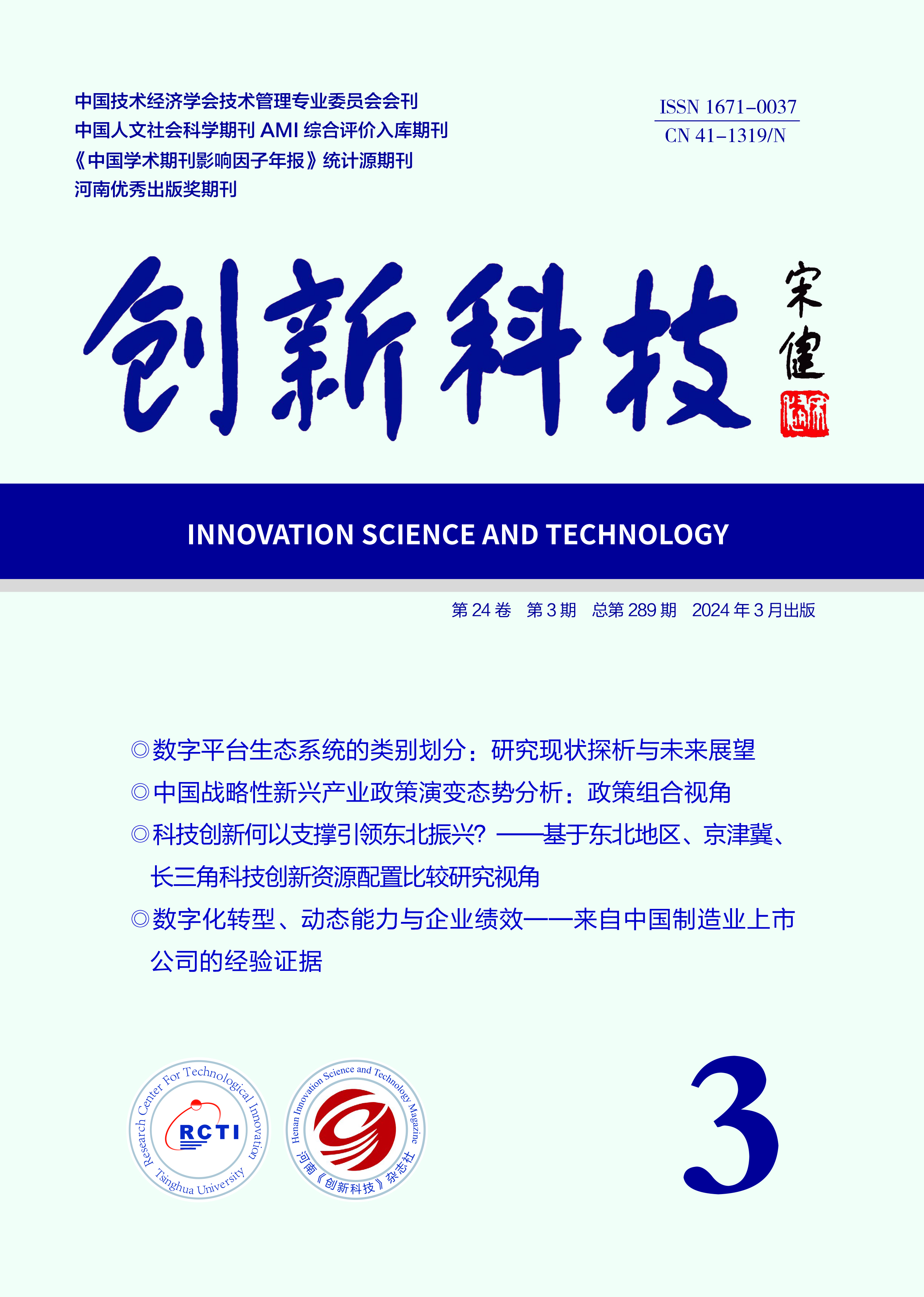INNOVATION SCIENCE AND TECHNOLOGY
Quick Search

All publication are peer-review
Peer review will take the from of double-blind review Judge objectively and impartially
There is no conflict of interest for the reviewer
Review articles shall be kept strictly confidential prior to publication
Science & Technology Strategy and Policy
Research on the Operation Status and Optimization Measures of
the Power Mechanism for Independent Innovation of Core Tech⁃
nologies in China
Wang Jiaxi
(Institute of Applied Economics, Shanghai Academy of Social Sciences, Shanghai 200020, China)
Abstract: Addressing the bottleneck of independent innovation in core technologies requires
the establishment of an efficient driving mechanism. This paper seeks to explore the underlying
mechanisms that facilitate independent innovation in core technologies, commencing with a theo⁃
retical clarification of their structural composition. The study suggests that this system comprises
three primary categories: technological promotion, market stimulation, and corresponding incen⁃
tive frameworks. The effective operation of this mechanism necessitates the seamless internal cir⁃
culation among its various components and the organic coordination between different mecha⁃
nisms. Moreover, in an increasingly internationalized landscape of innovative activities, the im⁃
portance of international collaboration in these mechanisms cannot be overstated.
Building upon the elucidation of mechanism composition, this paper conducts a comprehen⁃
sive analysis of China's current motivation mechanism for independent innovation in core tech⁃
nologies. It identifies several key issues: Firstly, the contribution of technology promotion to
breakthroughs in core technological fields significantly lags behind that observed in general tech⁃
nology sectors. In terms of input, there is inadequate investment and talent allocation within ba⁃
sic research coupled with low willingness for independent innovation among enterprises operat⁃
ing in core areas. On the output side, serious structural problems exist regarding the distribution
of innovative outcomes. While technology promotion has substantially increased production lev⁃
els for general-quality papers and patents, it lacks sufficient impetus to foster independent inno⁃
vation within core technological domains. Overall, the trajectory of innovation development ex⁃
hibits characteristics described as "numerous yet subpar" and "large yet weak".
Furthermore, an analysis focusing on market scale metrics, such as transaction volumes in
technical markets and import-export structures of high-tech products, reveals that while overall
market prospects are promising, growth within the core technology sector remains sluggish along⁃
side a notable shortage in technology supply. Regarding incentives for independent innovation
within these domains, it seems that governmental support is insufficient. Specifically, govern⁃
ment investment rates into critical technological areas lag behind overall funding expansion
rates. Additionally, amidst an increasingly open environment for innovative activities character⁃
ized by a burgeoning global network for collaboration, existing governmental incentive mecha⁃
nisms fail to adequately support international openness and cooperation.
Lastly, the interactive ecosystem among driving forces for core technologies in China re⁃
mains underdeveloped at present. Cooperation between Chinese enterprises and research institu⁃
tions tends to focus predominantly on applied research areas capable of achieving large-scale
commercialization quickly while lacking robust interaction frameworks involving government
leadership alongside enterprise participation.
In conclusion, this paper outlines specific strategies aimed at enhancing incentives for inde⁃
pendent innovation within core technologies in terms of refining top-level design, optimizing re⁃
source allocation, reinforcing complementary incentive measures, and fostering deeper interna⁃
tional collaboration and exchange.
Key words: core technology; independent innovation; dynamic mechanism